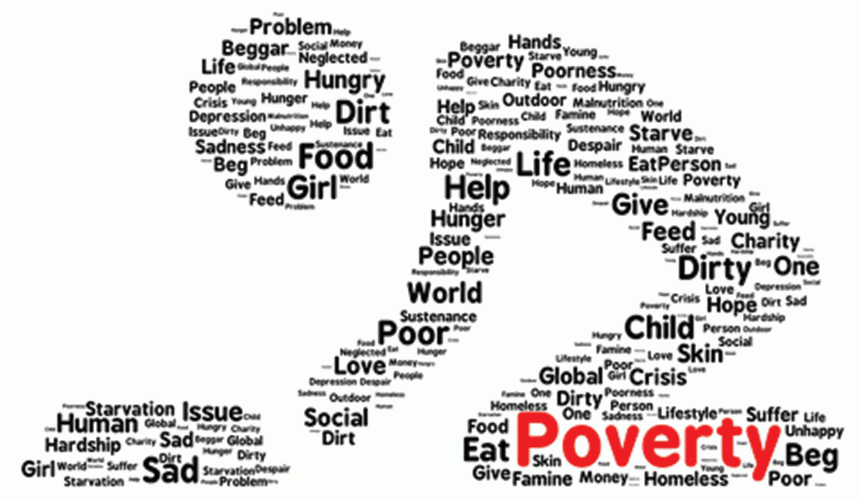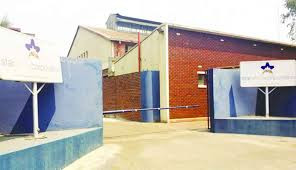
Bulawayo, Zimbabwe’s second-largest city, and is home to a population grappling with severe economic challenges. Faced with high levels of unemployment, a rising cost of living, and widespread poverty, many residents find themselves trapped in cycles of debt. This article delves into the core economic issues facing Bulawayo, provides insights into their implications, and offers possible policy reforms that can alleviate these burdens and empower the city's residents.
Growing burden debt crisis
Debt has become a significant concern for the city’s residents. With limited access to formal credit and high-interest loans from informal lenders, many individuals are unable to escape financial hardships.
According to the Reserve Bank of Zimbabwe, household debt has increased sharply, with many residents relying on loans just to meet basic needs.
ZIMSTAT reports that nearly 80% of Bulawayo households live below the poverty line, which complexes the challenge of managing debt.
For many, high debt repayment costs are taking up a large portion of their incomes, leaving little room for savings or investments.
This financial strain is leading to constant cycles of borrowing, hence worsening the debt crisis. Evidently without any meaningful intervention, debt traps will continue to hinder economic mobility, pushing more families into poverty.
Proposed suggestion for the desired reform in this would be a launching of citywide financial literacy programmes, focusing on debt management, savings, and budgeting, particularly for low-income households.
- Thousands flee economic mess
- ZimStat undertakes to pay enumerators
- 'Apostolic sects frustrating fight against measles'
- Graft 'bleeding' ZimStat
Keep Reading
Financial literacy education will equip residents with the tools to manage their finances, reducing reliance on high-interest loans and empowering them to avoid debt traps. When people understand how to budget, save, and manage debt, they are more likely to break free from financial strain, reducing the overall debt burden in the community.
Economic inequality, unemployment
Bulawayo faces an unemployment rate of around 45%, with young people and women disproportionately affected. According to ZIMSTAT, the lack of formal employment opportunities is pushing many to seek informal work, which is typically low-paid and unstable.
This is contributing to the growing economic inequality, as the unemployed and underemployed are struggling to meet basic needs, falling deeper into poverty and debt.
The situation is even more dire for youth, with many graduates from institutions like the National University of Science and Technology and Bulawayo Polytechnic facing bleak prospects in a shrinking job market. Without access to affordable credit or entrepreneurship training, young people are often left vulnerable to predatory lending practices.
High unemployment and economic inequality fosters a sense of despair, leading to social unrest and increased dependence on informal credit markets. To combat this, expanding vocational training programmes and apprenticeships for youth in key sectors such as technology, construction, and agriculture, together with fostering public-private partnerships to create internship and job placement opportunities would be ideal.
Thus, ultimately providing young people with relevant skills and job opportunities, the unemployment rate will decrease, and the economy will benefit from a more skilled workforce. This will reduce the economic inequality that exists within the city and help young people escape the cycle of poverty and debt.
High living costs
Rising living costs have become a daily struggle for Bulawayo’s residents. With inflation rates continuously fluctuating, many families can barely afford food, housing, and medical care.
Rent prices are high, and many people are being forced to live in overcrowded conditions, increasing their vulnerability to debt as they have to borrow to make daily ends meet.
The lack of access to affordable healthcare services is adding to the financial strain, as medical costs are pushing families deeper into financial distress. The increasing cost of living, combined with limited access to basic services, typically creates a cycle of poverty where debt becomes inevitable for many households.
There is therefore a need for the introduction of policies that prioritise affordable housing development and improve access to healthcare services, including a national health insurance scheme for low-income households. Affordable housing will reduce the financial burden of exorbitant rent, allowing families to allocate available resources to other necessities, such as education and healthcare.
Further to that, expanding access to affordable healthcare through a national health insurance scheme will reduce out-of-pocket expenses, helping families avoid medical debt and improving public health outcomes. Together, these reforms will alleviate significant sources of financial strain for residents.
Youth skills development initiatives
The youth unemployment rate in Bulawayo, just like the rest of the country remains alarmingly high, and without meaningful economic opportunities, young people are at risk of falling into debt traps.
A lack of skills training further limits their ability to access well-paying jobs. This leaves many youths vulnerable to exploitative work conditions or forced into informal lending schemes to make ends meet.
For as long as young people are unable to find stable work or develop employable skills, the long-term social and economic consequences will be dire, leading to entrenched poverty and social unrest.
What would be required in this is investment in vocational training programs and apprenticeships that align with market needs, encouraging partnerships between the government, NGOs, and private sector to create internship opportunities, and supporting young startup entrepreneurs.
These initiatives will help young people gain relevant skills, making them more competitive in the job market.
By reducing youth unemployment, the risk of debt accumulation among the younger population will decrease, contributing to a more stable and prosperous economy in Bulawayo.
Gender-inclusive policies
Women in Bulawayo are subjected to systemic barriers to economic independence, including limited access to credit, education, and business opportunities.
A 2023 report from the Zimbabwe Women’s Finance Trust revealed that women are significantly less likely than men to secure loans from formal financial institutions.
This gender inequality in access to resources is leaving many women vulnerable to exploitation by informal money lenders, perpetuating cycles of debt. Without addressing gender inequality, women will continue to face financial insecurity, which affects the broader community and economy. There must be design and implement of policies that promote gender equality in economic opportunities, such as access to micro-credit, business mentorship, and entrepreneurship programs tailored to women. Empowering women economically will not only improve household incomes but also contribute to the overall economic growth of Bulawayo. When women have equal access to financial resources and opportunities, they can break free from debt cycles, improve their family’s financial security, and contribute to community development.
The economic challenges facing Bulawayo are complex and interconnected. However, by adopting a comprehensive and inclusive approach that addresses debt, unemployment, and inequality, we can create a more resilient and empowered community.
The proposed policy reforms outlined herein have the potential to alleviate financial strain, reduce vulnerability to debt, and improve the overall well-being of residents.
Millin is a social and economic justice ambassador. She writes in her personal capacity. These weekly articles are coordinated by Lovemore Kadenge, an independent consultant, managing consultant of Zawale Consultants (Pvt) Limited, past president of the Zimbabwe Economics Society and past president of the Chartered Governance & Accountancy Institute in Zimbabwe. — kadenge.zes@gmail.com or mobile: +263 772 382 852










